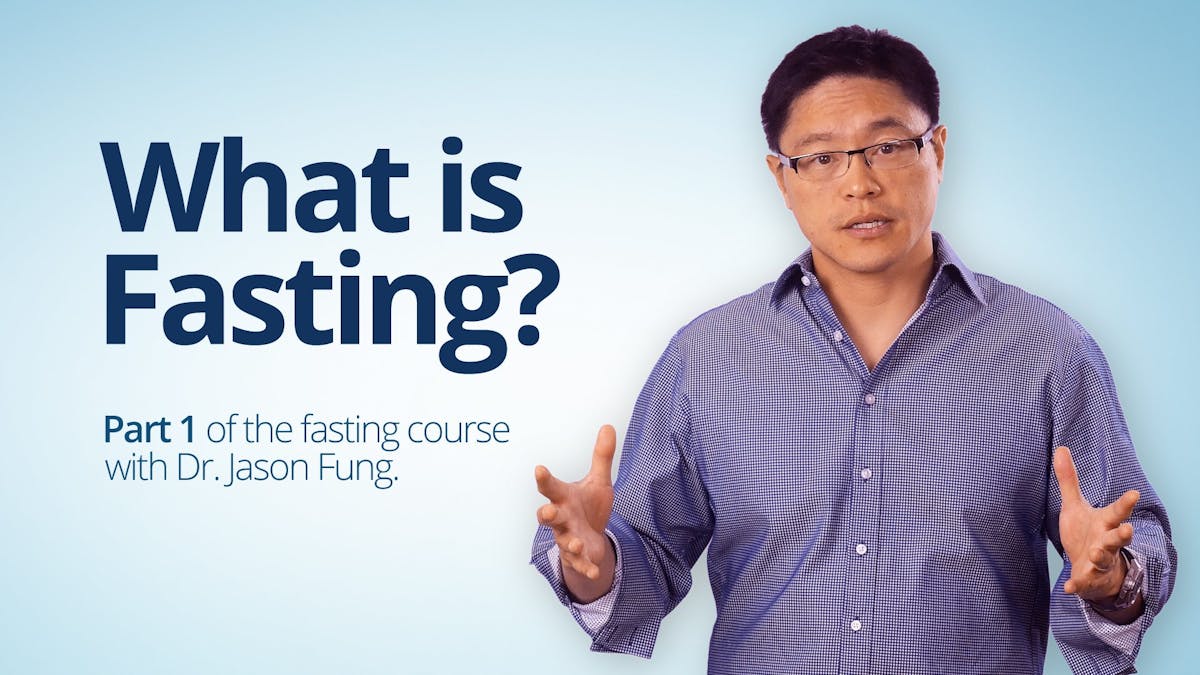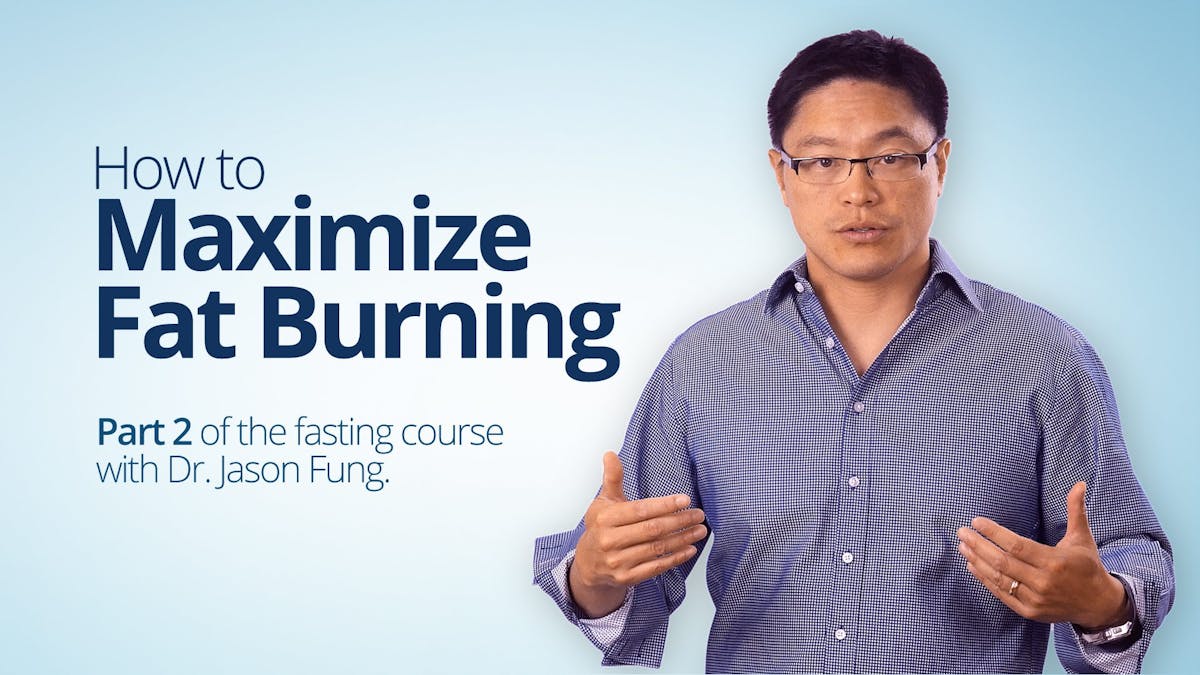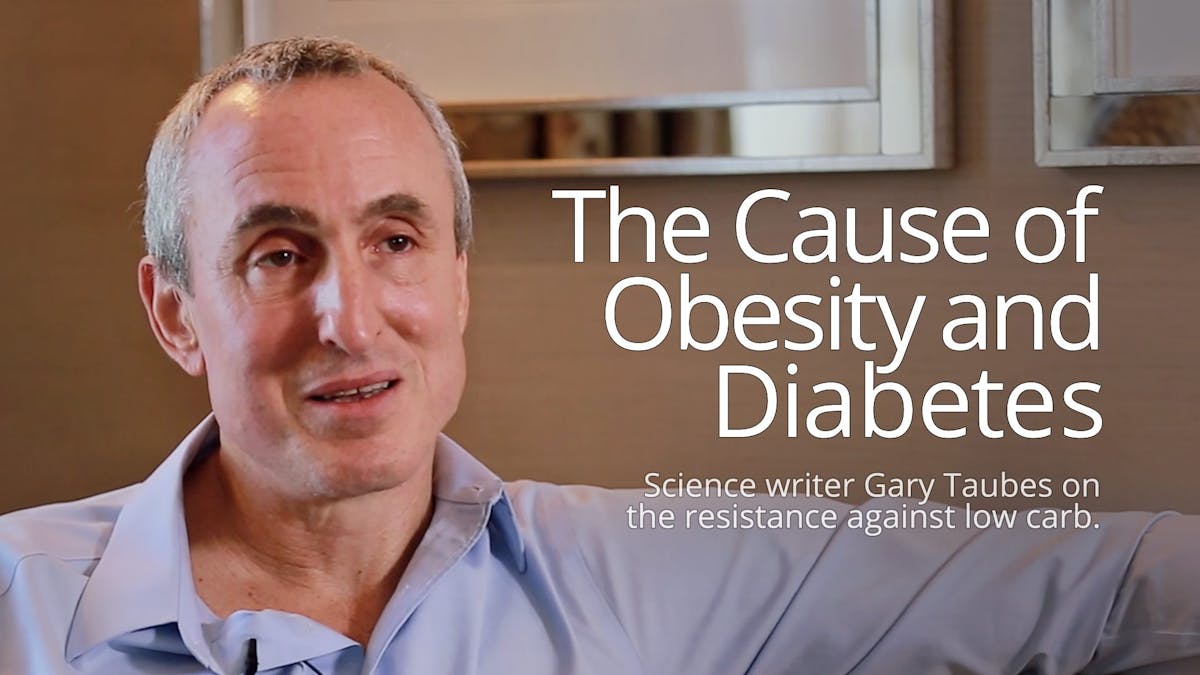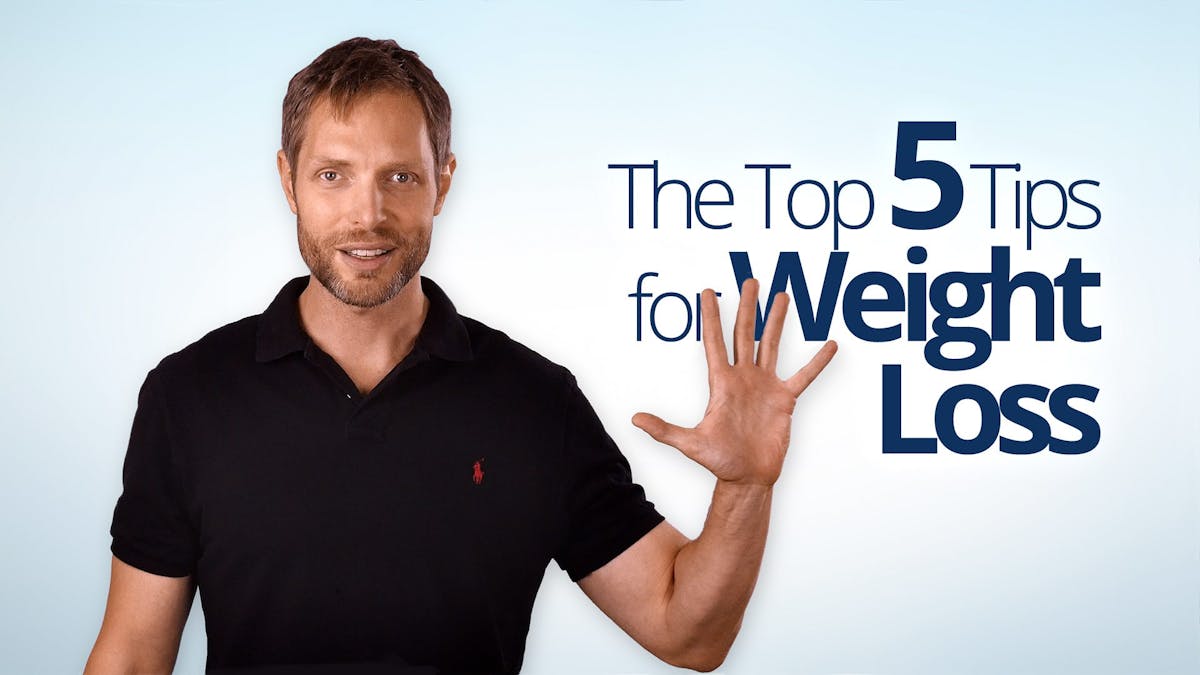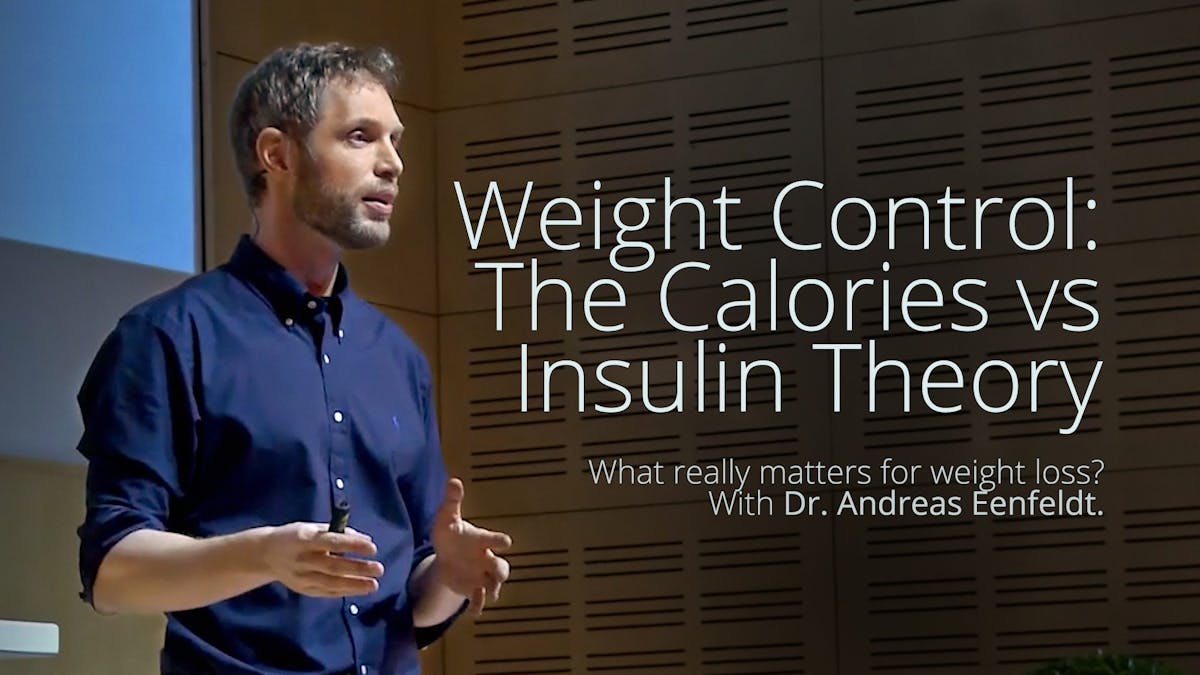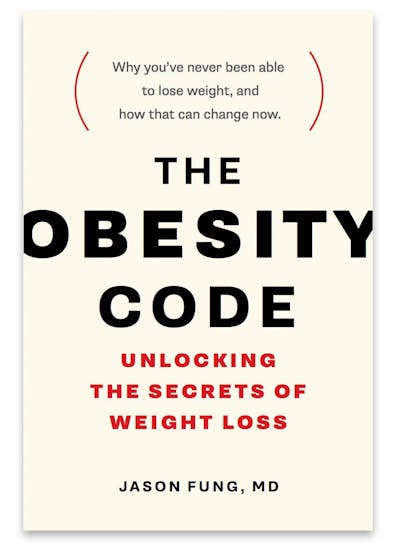How to fix your broken metabolism by doing the exact opposite
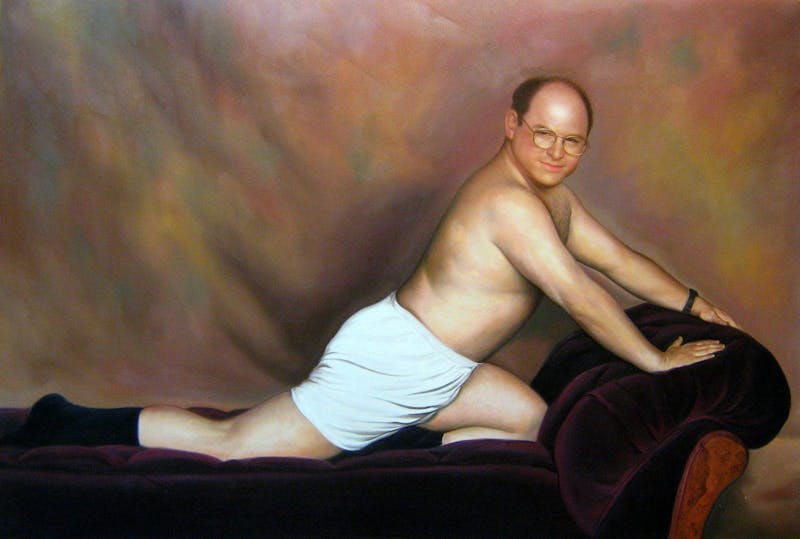
We saw recently with the Biggest Loser study that basal metabolism plummets when you lose weight with calorie reduction. As contestants lose weight, they burn a lot less energy – up to 800 calories per day less than before!
Some of that is expected, since there is less body tissue to maintain, but nevertheless, these contestants burn far less than expected even taking this into account. Even 6 years later, their basal metabolic rate (BMR) remains depressed, as do the contestants themselves.
The story got a lot of coverage, but one thing was consistently missing. How to fix it. That’s what I’ll show you today, and it’s the opposite of what most people expect.
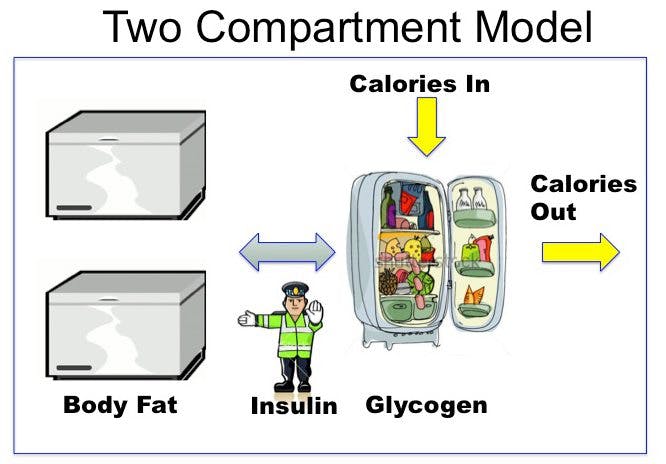


So, let’s think about this problem in the context of the 2 compartment model of obesity that we have used before. There are two compartments for body energy. We take calories in as food. This gets stored in the short term as glycogen, or long term as body fat.
Glycogen is easily converted to energy (calories out), but body fat, not so much. So we can consider the analogous situation where short term energy is stored in a refrigerator and long term in the basement freezer.
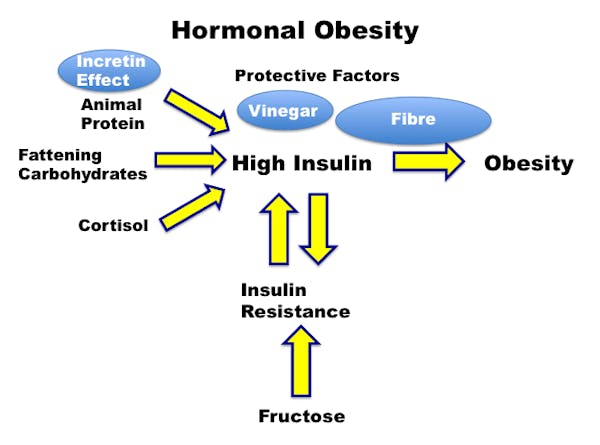


This is body fat and manufactured in the liver by the process of de novo lipogenesis. What causes insulin levels to be elevated depends partly on the foods we eat, but also by insulin resistance.
Fructose, for example, can elevate insulin resistance which will, in turn raise insulin levels. Insulin resistance leads to high insulin levels, which leads to higher resistance in a vicious cycle. That is, it can be self sustaining.
Read more in our guides what you need to know about insulin resistance and how to treat insulin resistance.
So during weight loss, if we don’t address the long term issue of insulin resistance, then we won’t be able to efficiently burn fat. Our basal metabolism gets energy from two sources – food, and stored food (fat). If high insulin levels blocks our access to fat stores, then almost all of our energy must come from food. If we reduce food intake from 2000 calories per day to 1200, in theory basal metabolism must also fall from 2000 calories to 1200.
This is a logical response from the body. Where would it get energy from? Fat stores are locked away since high insulin will block efficient fat burning (lipolysis). So, as ‘Calories In’ goes down, so can ‘Calories Out’. This is likely why the Biggest Loser contestants metabolisms plunged so heavily. This is the problem of the solitary focus on caloric reduction. It may be about calories in, but it’s also about ‘Calories Out’.
Consider the analogy of soccer. Soccer’s First Law of Thermodynamics says that to win, you must have more ‘Goals In’ than ‘Goals Allowed’. Goals can’t be created out of thin air. So, therefore if we increase the numbers of ‘Goals In’, we will win every game. So, we move our goalie and position players all to forward and ask them to stay in the attacking zone.
Of course, we lose every single game. By trying to increase ‘Goals In’, we’ve increased ‘Goals Allowed’. The mistake is to assume that increasing ‘Goals In’ will not affect ‘Goals Allowed’. Then we blame players for not trying hard enough. But, in truth the strategy was bad.
Same goes for ‘Calories In’ and ‘Calories Out’. Reducing ‘Calories In’ can result in reduction of ‘Calories Out’. When this happens, you’ll ‘lose’ every single time, as the Biggest Loser suggests. The mistake is to assume that reducing ‘Calories In’ will not reduce ‘Calories Out’. But it does. Then we blame patients for not trying hard enough, but in reality, the strategy is flawed. We can’t ignore insulin.
How to Fix your Broken Metabolism
So, are we doomed to a life of ever growing waistlines? Hardly. Remember, one key to weight loss is to maintain energy expenditure (calories out).
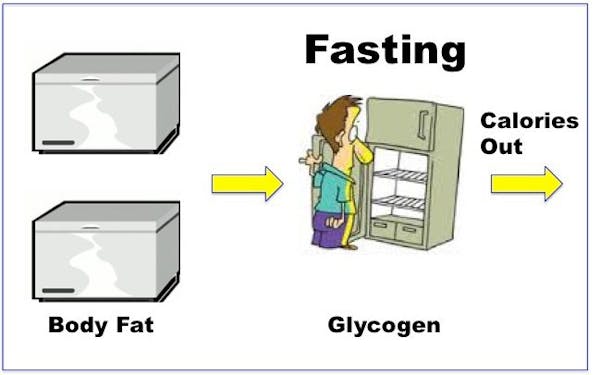


Lowering insulin will allow fat burning (lipolysis). This provides our body with lots of energy. If we have lots of energy coming in, the body has no reason to shut down its basal metabolism. The quickest, most efficient way to lower insulin? Fasting. Ketogenic diets will work, too. But remember that insulin has many inputs and is not simply carbohydrates. Cortisol, fructose, insulin resistance, vinegar, and countless other things play a role in determining insulin levels. Generally, though, cortisol and insulin resistance are the things least likely to be treated.
Once the doors to the ‘fat’ freezers are open, the body says, “Whoa, there’s lots of energy here. Let’s burn a little extra”. Studies of fasting show that basal metabolism doesn’t shut down during short-term fasting, it revs itself up. Four consecutive days of fasting increases basal metabolism by 13%.



Studies of alternate daily fasting (ADF) show the same thing. Basal metabolism is maintained, even over 22 days of ADF. Even with weight steadily decreasing, the resting metabolic rate is statistically identical at the end of 22 days. You can see from the table below, that carbohydrate oxidation plummets as fat oxidation rises, just as seen previously.
This is an important point. In standard caloric reduction strategies, the body reduces its caloric expenditure to adjust to the reduced caloric intake. Stores of energy locked away as body fat are not available. If you reduce your calories from 2000 to 1200 per day, then your body may be forced to reduce calorie expenditure to 1200 per day since it cannot get any from the stored food (fat). Where’s the extra energy going to come from?
However, by lowering insulin drastically during short-term or alternate daily fasting, the body does not shut down. Instead, it switches fuel sources. No food is coming in. Insulin falls. Your body has a choice. It can reduce calorie expenditure to zero, also known technically as ‘dropping dead’. Or, it can force open the reserves and power itself from fat.
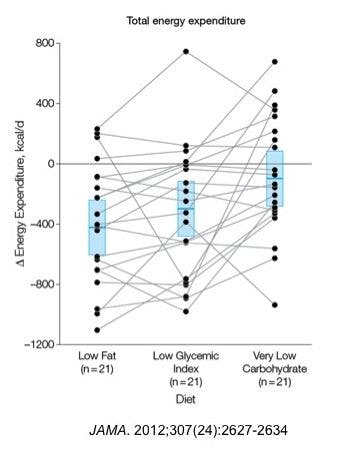


The low fat diet does little to reduce insulin levels. So fat stores aren’t efficiently used for energy. Basal metabolism drops almost 400 calories per day. But on the other extreme, very low carbohydrate diets would be the diet that lowers insulin the most. This allows access to the basement fat ‘freezer’. Now our body has the energy it needs to start revving up its metabolism.
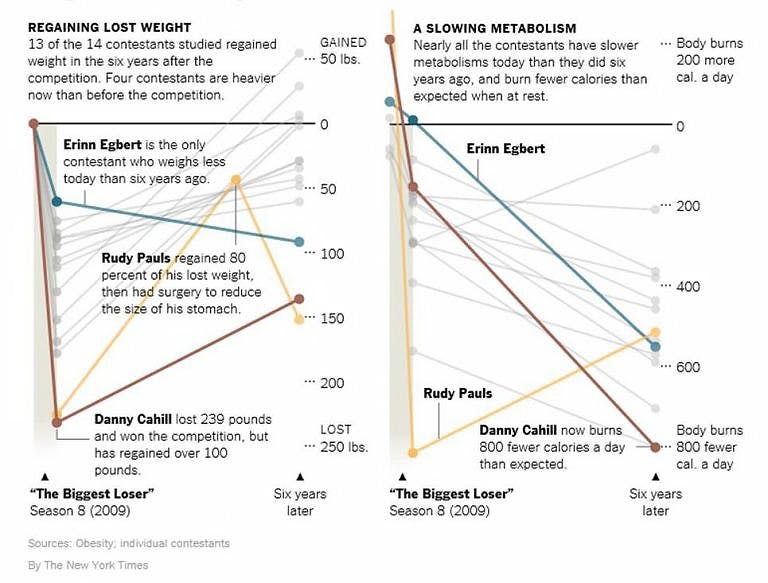


It works with surgically enforced fasting such as seen with bariatric surgery, too. The one contestant, Rudy Pauls, who got bariatric surgery fixed his wrecked metabolism. So, is it possible? Definitely. Rudy Paul’s metabolism had slowed more than any other contestant. That’s why his weight regain was so dramatic. By forcing himself to fast, he has partially repaired his broken metabolism.
In order to fix our broken metabolism, we need to allow free access to the energy contained within our fat stores. We need to allow fat burning (lipolysis) to proceed normally. We need to lower insulin. The answer is low carbohydrate diets, or even better – a low-carb diet with intermittent fasting.



This is the George Costanza method. If everything you do makes things worse, do the exact opposite.
It does not matter if you think it doesn’t make sense. Do it anyway and see what happens.
The standard nutritional advice given – to Eat Less and Move More is so flawed that doing anything, even the exact opposite will likely beat it.
Try low carb
Do you want to try a low-carb and ketogenic diet yourself? Use these resources:
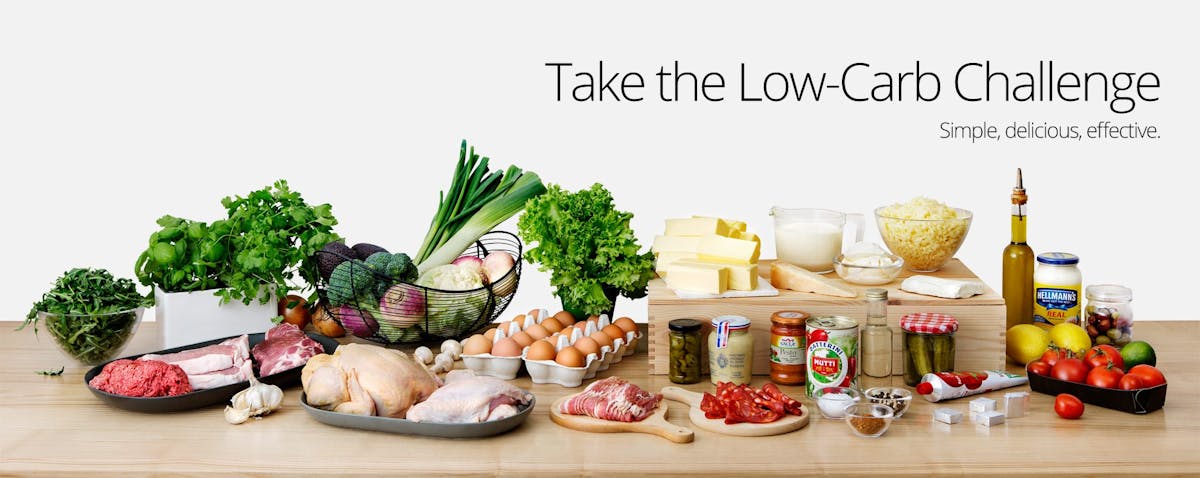

Try intermittent fasting
Videos
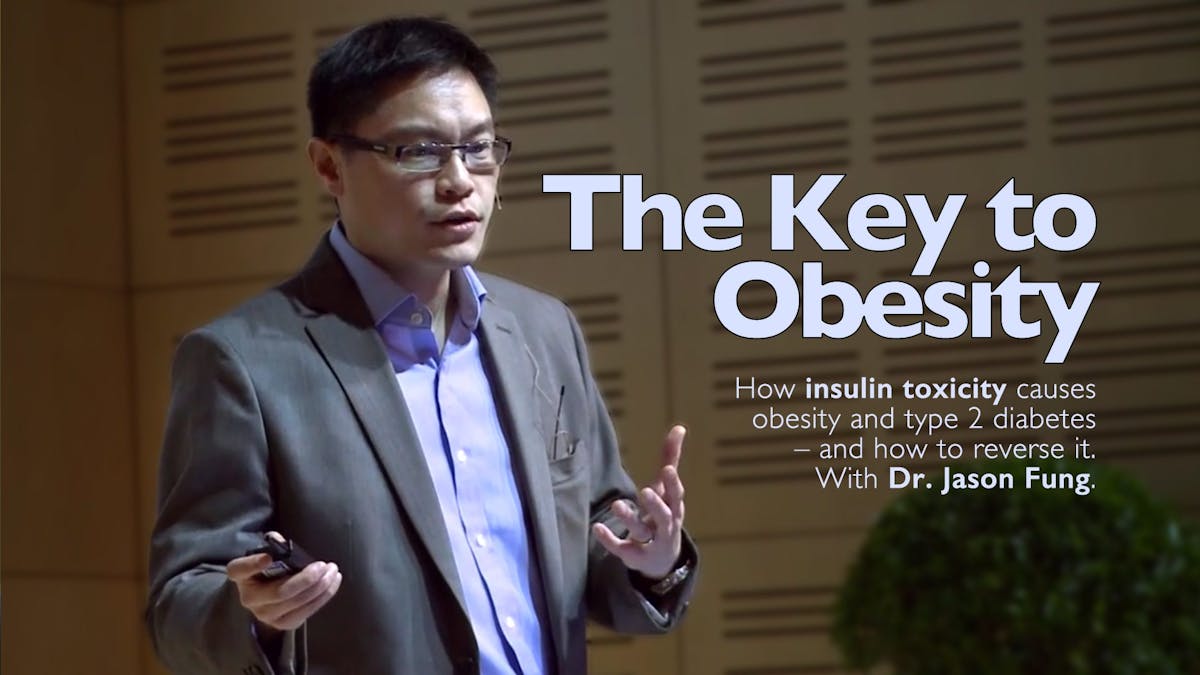

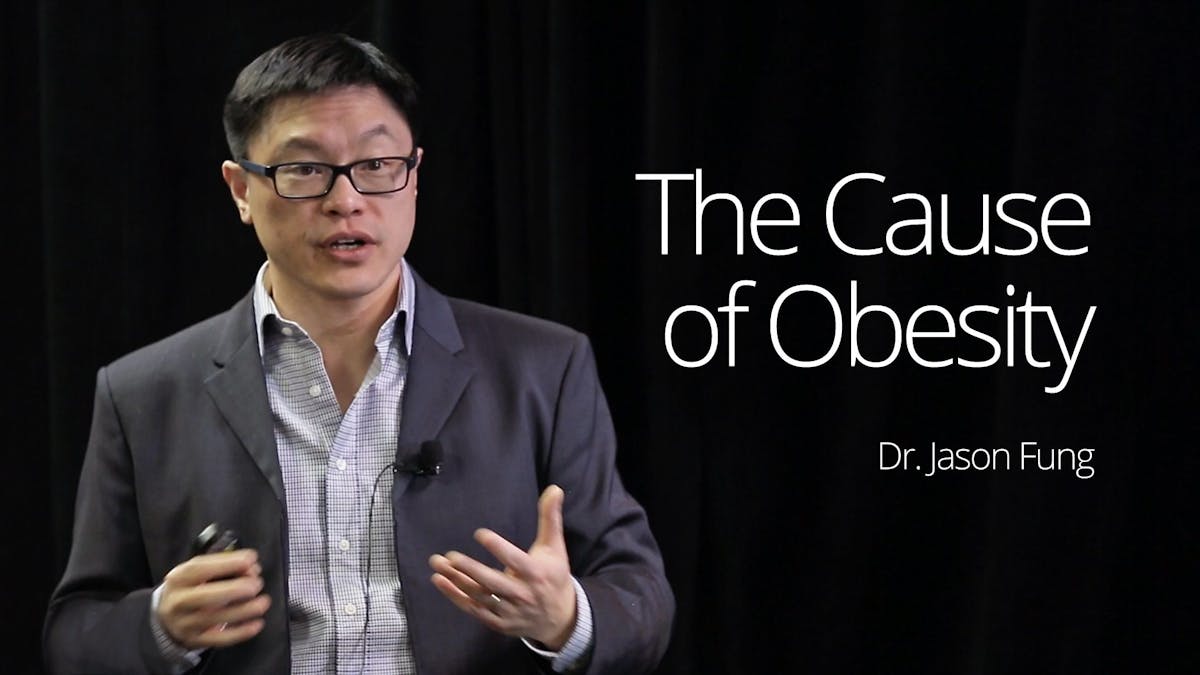

More with Dr. Fung
He is active on Twitter.
His book The Obesity Code is available on Amazon.
